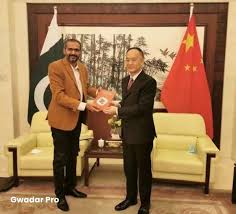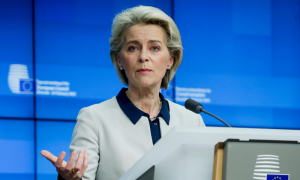Pakistan urged to reorient its foreign policy strategy focusing on China

Islamabad: Shakeel Ahmed Ramay, CEO of the Asian Institute of Eco-civilization, Research, and Development (AIERD), emphasized the need for Pakistan to reorient its foreign policy strategy focusing on China.
Speaking at an event titled “China, Middle East, and the Role of Pakistan” organized by the Institute of Regional Studies (IRS), Shakeel Ahmed Ramay argued that instead of balancing relationships with the United States, the European Union, the Gulf Cooperation Council (GCC), or China, Pakistan should prioritize its national interests, acknowledging that its strategic location is relative and can be leveraged to its advantage.
Ramay, along with other distinguished speakers, explored the evolving dynamics of China’s engagement in the Middle East, which is increasingly defined by shared values and aligned interests.
The event, attended by diplomats, researchers, academics, journalists, and students, highlighted how Pakistan could play a crucial role in facilitating integration, collaboration, and cooperation in the region by capitalizing on its strategic position.
In his remarks, Ramay underscored the strong and historical ties between China and the Middle East, emphasizing that these bonds are free from the baggage of historical conflicts or regional proxy wars, unlike those of many Western nations. He pointed out that Pakistan, despite its current economic challenges, could still act as a key facilitator in strengthening China-Middle East relations. This could be achieved by Pakistan reassessing its strategic significance and realigning its foreign policy to prioritize its interests, particularly in relation to opportunities like Saudi Arabia’s Vision 2030 and trilateral trade relationships with China and Iran. Ramay suggested that Pakistan could leverage its cultural connections and agricultural potential to become a significant supplier of food to the Middle East, thus contributing to regional stability and economic integration.
Professor Azhar Ahmad, a senior professor of International Relations, highlighted China’s historical anti-imperialist stance and its role as a mediator in global affairs, particularly in the Global South. He cited China’s recent efforts in mediating the Saudi-Iran rapprochement and its initiatives to unify Palestinian factions as examples of its constructive engagement in the Middle East.
Dr. Munawar Hussain, a faculty member at Quaid-i-Azam University, provided a comprehensive analysis of China’s strategic approach to the Middle East. He portrayed China as a patient and wise actor in international relations, one that has consistently avoided colonialism and maintained a non-interventionist foreign policy. Dr. Hussain also discussed China’s shift from socialism to neoliberalism, aimed at fostering a multipolar world, and its sustained support for Palestine. He noted that China is now the largest importer of oil from the Middle East, further solidifying its role in the region.
In his concluding remarks, Dr. Rizwan Naseer, a Senior Research Fellow at the IRS, emphasized the significance of 2023 in China’s diplomatic achievements in the Middle East.
He highlighted China’s success in securing energy resources, establishing strategic partnerships through the Belt and Road Initiative (BRI), expanding markets for its technology, and balancing U.S. influence in the region. The 2023 Arab-China Business Conference, which resulted in a YS $10 billion investment, was cited as evidence of the deepening economic ties between China and the Middle East. Dr. Naseer also pointed to the growing synergy within the Shanghai Cooperation Organization (SCO), where Iran became a full member and several Arab states, including Saudi Arabia, the UAE, Bahrain, and Kuwait, were included as dialogue partners.
He maintained that Pakistan, with its strategic geolocation and the China-Pakistan Economic Corridor (CPEC), has the potential to serve as a vital hub for regional connectivity, enhancing its role in the evolving geopolitical landscape.





